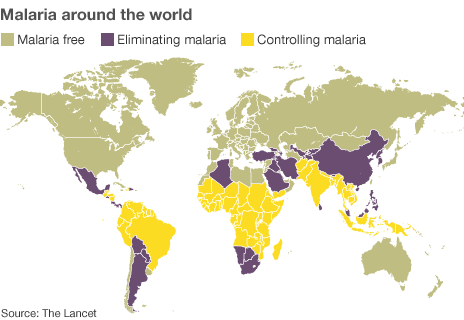
The Cancer Institute of new Jersey Explores Blocking Mechanism for Cancer Cell Survival
Newswise — Building upon recent laboratory discoveries on resistance by cancer cells to therapies that attempt to starve cancer, scientists at the Cancer Institute of new Jersey (CINJ) are conducting a clinical trial that further explores how to prevent that action. the goal is to discover if an anti-malaria drug approved by the Food and Drug Administration is able to block a cellular process that acts as a survival method for malignant cells in human melanoma, the most life threatening form of skin cancer. CINJ is a Center of Excellence of UMDNJ-Robert Wood Johnson Medical School and new Jersey’s only National Cancer Institute-designated Comprehensive Cancer Center — one of only 40 in the country.
Hydroxychloroquine, which is commonly used to treat malaria and certain types of arthritis, has been shown to block autophagy, the process by which cells eat themselves in order to survive through times of stress. this process allows cells to become resistant to cancer therapies. Research by CINJ Associate Director for Basic Science, Eileen White, PhD, adjunct professor of surgery at UMDNJ-Robert Wood Johnson Medical School and professor of molecular biology and biochemistry at Rutgers, the State University of new Jersey, and other laboratories at CINJ indicates that drugs such as hydroxychloroquine may help cancer treatments work more effectively by providing an easier path for the cancer drugs to enter the cell.
In this trial, investigators want to learn how to detect the process of autophagy in humans with melanoma, a goal lead researcher Janice Mehnert, MD, medical oncologist at CINJ and assistant professor of medicine at UMDNJ-Robert Wood Johnson Medical School, says is key. “By further examining the process of autophagy and learning if hydroxychloroquine is able to interrupt this process in human blood and tumor samples, we may be able to find a way to maximize the benefit of hydroxychloroquine in order to improve clinical outcomes,” she said.
Adults with stage III or stage IV melanoma tumor or tumors (cancer that has spread beyond where it first occurred) who can be scheduled for surgery to either cure the cancer or lessen the symptoms of cancer are eligible to take part in the trial, although other criteria must be met. Patients with newly diagnosed melanoma tumors or who have disease that has returned also are eligible to participate. Prior to being accepted into the study, participants would undergo a number of tests including blood work and a physical.
If accepted for participation in the trial, individuals will take a hydroxychloroquine pill each day for two weeks leading up to surgery. Participants will keep a pill diary and undergo periodic blood work during this time.
For more information on how to take part, individuals should call CINJ’s Office of Human Research Services at 732-235-8675 or e-mail cinjclinicaltrials@umdnj.edu.
The trial is supported by grants from the National Cancer Institute and the Harry Lloyd Foundation.
Clinical trials, often called cancer research studies, test new treatments and new ways of using existing treatments for cancer. at CINJ, researchers use these studies to answer questions about how a treatment affects the human body and to make sure it is safe and effective. there are several types of clinical trials that are currently underway at CINJ, including those that diagnose, treat, prevent, and manage symptoms of cancer. Many treatments used today, whether it is drugs or vaccines; ways to do surgery or give radiation therapy; or combinations of treatments, are the results of past clinical trials.
As new Jersey’s only National Cancer Institute-designated Comprehensive Cancer Center, CINJ offers patients access to treatment options not available at other institutions within the state. CINJ currently has more than 1,000 patients enrolled in clinical trials, including approximately 15 percent of all new adult cancer patients and approximately 70 percent of all pediatric cancer patients. Enrollment in these studies nationwide is fewer than five percent of all adult cancer patients.
About the Cancer Institute of new JerseyThe Cancer Institute of new Jersey (cinj.org) is the state’s first and only National Cancer Institute-designated Comprehensive Cancer Center dedicated to improving the detection, treatment and care of patients with cancer, and serving as an education resource for cancer prevention. CINJ’s physician-scientists engage in translational research, transforming their laboratory discoveries into clinical practice, quite literally bringing research to life. to make a tax-deductible gift to support CINJ, call 732-235-8614 or visit cinjfoundation.org. CINJ is a Center of Excellence of UMDNJ-Robert Wood Johnson Medical School.
The CINJ Network is comprised of hospitals throughout the state and provides the highest quality cancer care and rapid dissemination of important discoveries into the community. Flagship Hospital: Robert Wood Johnson University Hospital. system Partner: Meridian Cancer Care (Bayshore Community Hospital, Jersey Shore University Medical Center, Ocean Medical Center, Riverview Medical Center, and Southern Ocean Medical Center). Major Clinical Research Affiliate Hospitals: Carol G. Simon Cancer Center at Morristown Memorial Hospital, Carol G. Simon Cancer Center at Overlook Hospital, and Cooper University Hospital. Affiliate Hospitals: CentraState Healthcare system, JFK Medical Center, Mountainside Hospital, Raritan Bay Medical Center, Robert Wood Johnson University Hospital Hamilton (CINJ Hamilton), Somerset Medical Center, the University Hospital/UMDNJ-New Jersey Medical School*, and University Medical Center at Princeton. *Academic Affiliate
Comment/Share